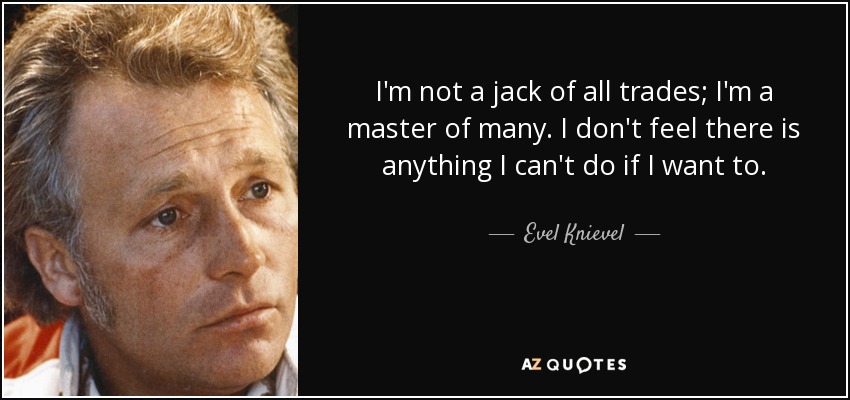In a world that often celebrates specialization and expertise, the adage “Jack of all trades, master of none” has long been used to caution against spreading oneself too thin. Yet, hidden within this saying lies a deeper truth—one that celebrates versatility, adaptability, and the beauty of a multifaceted skill set.
The phrase “master of none” can carry negative connotations, suggesting mediocrity or lack of commitment. However, it also implies a breadth of experience, a willingness to explore various interests, and an openness to continuous learning. Rather than viewing it as a limitation, embracing being a “Jack of all trades” can lead to a rich and fulfilling life.
In today’s fast-paced and ever-changing world, being adaptable is a valuable asset. The ability to pivot between different roles, industries, and areas of expertise can be advantageous, especially in uncertain times. Versatility allows individuals to navigate diverse challenges with ease, drawing from a reservoir of skills and knowledge acquired through varied experiences.
Moreover, the pursuit of mastery in a single domain often comes at the expense of neglecting other aspects of life. While specialization can lead to deep expertise, it may also result in tunnel vision, limiting one’s perspective and hindering personal growth. In contrast, those who embrace a broader range of interests and skills often find themselves better equipped to thrive in dynamic environments.
Consider the Renaissance polymaths—figures like Leonardo da Vinci, who excelled not only in art but also in science, engineering, and various other fields. Their curiosity and willingness to explore different disciplines allowed them to make groundbreaking discoveries and innovations that continue to inspire generations.
Similarly, in modern times, polymaths abound in fields ranging from technology and business to arts and humanities. Entrepreneurs who understand both design and coding, artists who incorporate scientific concepts into their work, and scientists who appreciate the nuances of philosophy exemplify the power of interdisciplinary thinking.
Embracing the identity of a “Jack of all trades” does not mean forsaking the pursuit of excellence. On the contrary, it involves striving for proficiency in multiple areas while acknowledging that mastery is a journey, not a destination. Each new skill acquired, each new experience gained adds depth and richness to one’s repertoire, contributing to a well-rounded and fulfilling life.
Furthermore, the interconnectedness of knowledge means that expertise in one area often enhances understanding in others. The creative problem-solving skills honed in one domain can be applied to seemingly unrelated challenges, leading to innovative solutions and novel insights.
Conclusion
In a world that values specialization, it’s easy to overlook the inherent beauty of versatility. Being a “Jack of all trades” offers the freedom to explore diverse passions, adapt to changing circumstances, and approach life with curiosity and open-mindedness. So, the next time someone labels you as a “master of none,” wear it as a badge of honor—a testament to your versatility, resilience, and endless potential.

